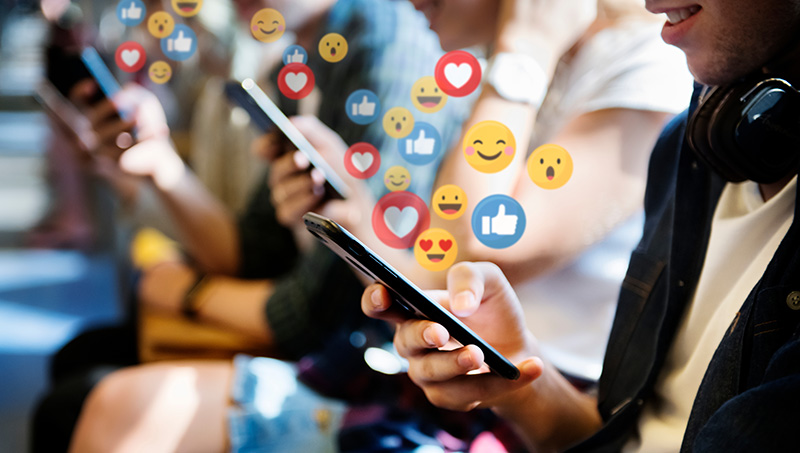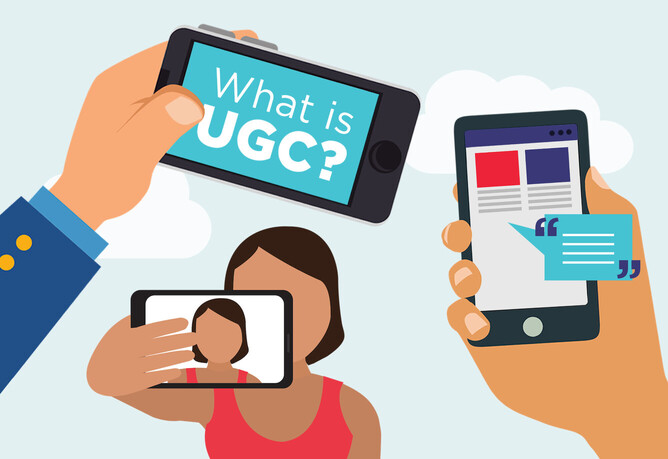Brands continually seek fresh approaches to get closer to consumers as the advertising environment keeps shifting rapidly. User-generated content is far more natural and relevant than advertisement content, with its message very polished and regulated.
User-generated content, essentially as the name implies, consists not of the brand but rather of all images, videos, reviews, and testimonies produced by actual users. Often spontaneous, authentic, and free of the gloss of professional marketing campaigns is what it is.
UGC has been used to advertise for good causes over the past few years. This paper investigates some of the leading causes of its emergence and the reasons behind its transformation into the current face of advertising.
The Authenticity Element
Authenticity is the reason UGC is so sought after. By now, a consumer encounters several ads every day in various forms; most of them are seen as clearly commercial and so are readily skipped. The traditional “sell”—the ideal models, scripted messages, and environments that make everything look manufactured—has become boring to many. Here is where UGC varies. It makes material that seems authentic, unscripted, and raw possible.
individuals naturally believe other individuals far more than they will ever think brands.

A Stackla 2021 study found that 79% of respondents stated that UGC influenced their purchase decisions—much more than conventional advertising can achieve. This is only because more relevant user-generated content shows the actual experiences of ordinary people. Whether it’s a picture of the meal eaten at a nearby restaurant, a video of unboxing some new technology, or an honest assessment of some cosmetic product—the actual experiences show themselves to the customers in ways that slick commercials cannot.
The Influence of Social Proof
UGC takes advantage of the psychological idea of social evidence. Social proof theory holds that when people are unsure about the course of action they should pursue, they are likely affected by the behavior of others. In marketing, social proof will show itself in many forms, but one of the most persuasive is watching others like you use and love a product. Customers automatically start feeling secure about purchasing when they see users discussing their great experiences.

Think about how breakaway sites like Yelp or TripAdvisor have become known. Mostly driven by UGC, consumers leave reviews and share experiences on both platforms. Frequently based on those reviews, potential consumers make judgments instead of depending on official advertising or sponsorships. The same is true in advertising: potential consumers are most likely inclined to trust a brand when they see actual people utilizing a good or service and having a good experience.
Enhanced Involvement and Interaction
Furthermore, growing engagement contributes to the incredible popularity of the term UGC. Conventions in advertising are only one-way dialogues. The brand speaks; the audience listens passively. But in UGC, the dynamics shift to a two-way exchange. Customers consume the material and actively participate in the brand’s story, transforming themselves.
These interactions generate community and belonging. By learning about their consumers’ experiences, companies bring them into larger dialogues. The interactive element allows one to increase emotional connection and value consumers even more. For example, Nike’s #JustDoIt campaign invites lovers to post their exercise paths regularly. It strengthens the brand’s message and makes individual consumers feel they could contribute to something more significant and essential.
Scale and Cost- Effectiveness
UGC’s cost-effectiveness is among its most appealing features for companies. Making great traditional commercials is expensive. Expenses increase quickly between agencies, models, photographers, and buying ad placements. The reverse is true with UGC, which makes exceptionally minimal brand investments. UGC replaces it with the ability of free content produced by users. Absolute satisfaction or passion for the product drives this.
This lets companies quickly scale their material as well. While making a commercial could take weeks or months, UGC can be made and shared instantly. Always creating its material is necessary for a company to employ hundreds or thousands of user-generated pieces across several channels. The sheer volume of material accessible via UGC can offer a constant flow of real advertising that stays current and relevant.
Different and inclusive representation
The criticism that most accurately captures reality concerns the absence of diversity in conventional advertising when showcasing people and things. Usually appealing to a tiny depiction of beauty, success, and lifestyle that might not be appealing to the general audience, brands appeal to Given the involved representations, user-generated material creates the universe of possibilities.
Leveraging a large body of material offered by people from diverse walks of life, backgrounds, and races, businesses may demonstrate how each of them uses products. In today’s socially conscious world, when consumers are more likely to support companies that align with their beliefs and advance diversity, this degree of inclusiveness is vital. UGC allows messages to show a broader spectrum of tales, ideas, and experiences, increasing the message’s credibility and inclusion.

Developing loyalty and trust
In a world of deceptive advertising, fake news, and misinformation, people trust less conventional advertising; effective brand relationships with consumers are built by trust. Here is where UGC shines. UGC comes from other consumers and is seen as much more reliable than company material.
A degree of trust is developed when other consumers observe that others are supporting a product and presumably have no motivation to do so. The outcome is the development of consumer allegiance. “We believe in our customers and their experiences,” a business that often employs UGC says. Such transparency and openness imply closer emotional ties between the brand and the audience, giving a long-term loyalty perspective.
Personalizing the Brand
It humanizes brands, transforming impersonal companies into ones consumers can connect to and who really care about. Brands sharing user-generated content helps them highlight actual individuals with actual stories. This consumer spotlighting offers a company a human touch, sometimes lacking in conventional commercials.

UGC also helps consumers believe that their experience and viewpoint count for something. It’s a form of acknowledgment that strengthens the link between the two when a client discovers that the brand has re-published their picture or review taken on social media. Customers feel valued much more when they receive this kind of appreciation, which also helps them to support the business routinely.
Conclusion
UGC in advertising represents a change in how companies approach and interact with their consumers, not only a transitory fad. UGC has become such a potent weapon that companies cannot afford to overlook at a period when it may help generate authenticity, boost involvement, and finally build trust. UGC offers the ideal solution as customers yearn for more real, relevant, and representative content since it lets businesses use the strength of their community to propel effective and significant advertising.

Living in a time when consumers’ voices are louder than ever, UGC marks the new era of advertising—one that is far more cooperative, open, and human-centered. Companies that can embrace this shift and enable their consumers to share their tales will be those not merely following the buzz but also walking into the future.




